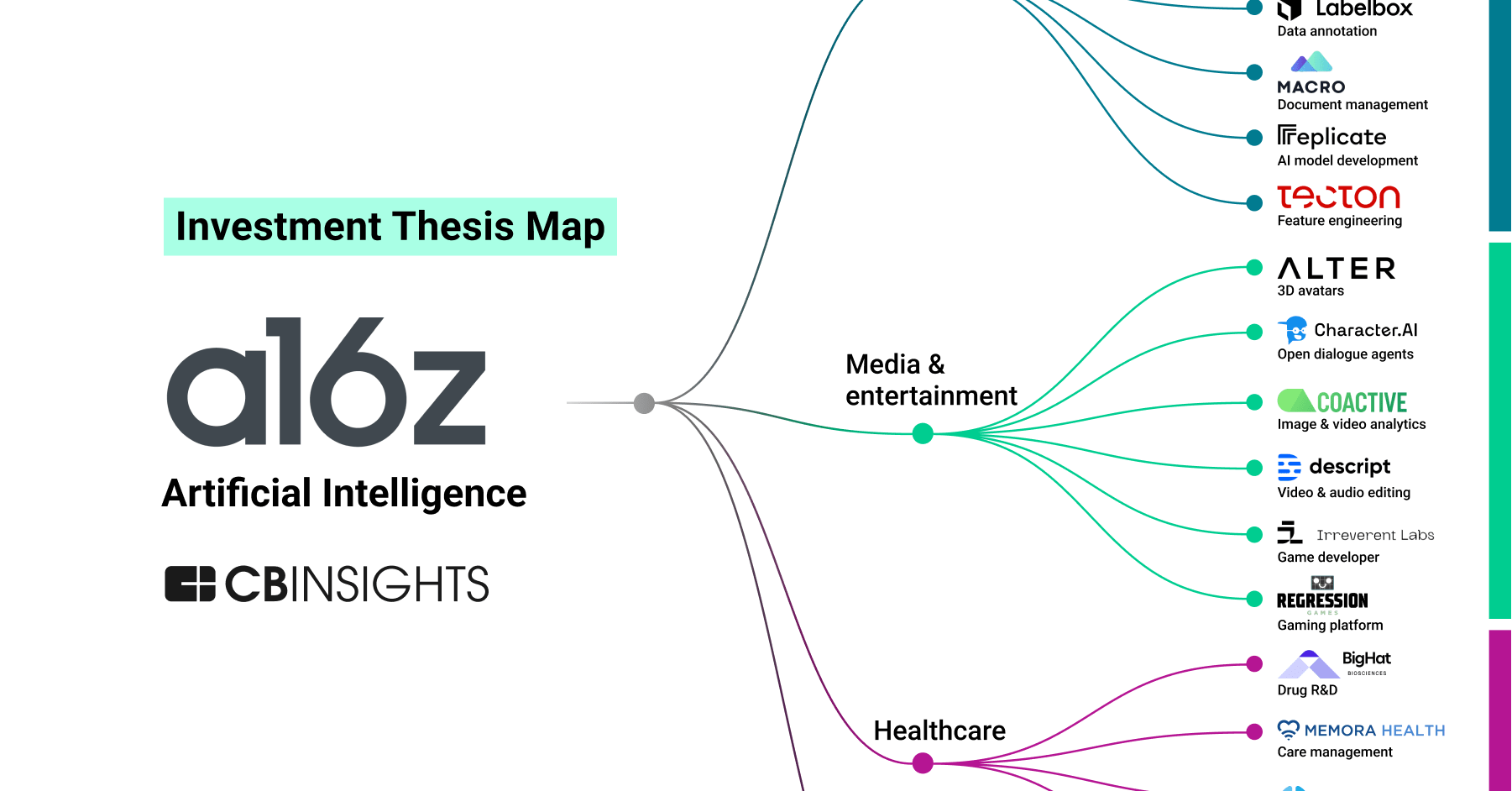Google's AI Investment: A Critical Analysis Of Returns And Future Potential

Table of Contents
Current Returns on Google's AI Investments
Google's AI investment isn't a monolithic entity; it's a vast network of initiatives spanning diverse products and services. Analyzing the returns requires examining both direct and indirect revenue streams.
Financial Metrics
Assessing the direct financial impact of Google's AI investment is challenging due to the integrated nature of AI across its platforms. However, we can estimate contributions from specific AI-driven products and services:
- Google Cloud AI: This platform offers a range of AI services, including machine learning APIs, natural language processing tools, and pre-trained models. Its revenue growth is significant, though exact figures attributable solely to AI are not publicly disclosed. The market for cloud AI is booming, indicating significant potential for future revenue generation.
- Google Assistant: Integrated into billions of devices, Google Assistant contributes to increased user engagement and potentially drives revenue through associated services and advertising. Its market share in the smart assistant space is substantial.
- Google Search: AI algorithms are core to Google Search's ability to deliver relevant results. While difficult to isolate, AI improvements directly impact advertising revenue, a major source of Google's income.
Profitability is complex. While AI contributes significantly to revenue, the costs of R&D, infrastructure (including massive data centers), and attracting top AI talent are substantial. The long-term payoff is expected to outweigh the considerable initial investments.
Market Share and Competitive Advantage
Google holds a strong position in several key AI domains, but the competitive landscape is fiercely contested.
- Strengths: Google excels in natural language processing (NLP), demonstrated by its advancements in machine translation and conversational AI. Its deep learning algorithms power many core products, giving it a technological edge.
- Weaknesses: While Google leads in some areas, competitors like Microsoft (with Azure AI and OpenAI integration) and Amazon (with AWS AI services) are making significant strides, challenging Google's dominance. OpenAI's rapid advancements in generative AI present a significant challenge.
Google's AI investments have undoubtedly bolstered its market position, particularly in cloud computing and search, though maintaining this advantage requires continuous innovation and adaptation.
Key AI Technologies and their Impact
Google's success is deeply intertwined with its advancements in core AI technologies.
Deep Learning Advancements
Google is a pioneer in deep learning, continually pushing the boundaries of what's possible.
- Applications: Deep learning powers Google Translate, Google Photos' image recognition capabilities, and Google's voice recognition technology. These advancements significantly improve user experience and underpin many of its products.
- Research: Google publishes extensively on its deep learning research, contributing significantly to the broader AI community. Its breakthroughs often translate directly into product improvements.
These advancements are not just incremental improvements; they represent fundamental shifts in how Google's products function, leading to enhanced user experiences and new revenue streams.
Cloud AI Services
Google Cloud Platform (GCP) offers a suite of powerful AI and machine learning services targeting developers, businesses, and researchers.
- Key Services: TensorFlow, a widely used deep learning framework, and Vertex AI, a unified machine learning platform, are key offerings. GCP actively fosters partnerships and collaborations to expand its ecosystem.
- Competition: While GCP is a strong contender, it faces stiff competition from Amazon Web Services (AWS) and Microsoft Azure. The competition focuses on features, pricing, and specialized AI capabilities.
Future Potential and Challenges
Google's future hinges on its ability to capitalize on emerging AI trends while navigating inherent challenges.
Emerging AI Trends
Google is aggressively pursuing investment in cutting-edge AI fields:
- Generative AI: Google is actively developing and deploying generative AI models, showcasing its commitment to this rapidly evolving field. The potential applications are vast, impacting everything from content creation to drug discovery.
- Quantum Computing: Google is investing heavily in quantum computing research, viewing it as a potentially transformative technology with long-term implications for AI.
- Ethical AI: Google is increasingly focusing on ethical considerations, aiming to build AI systems that are fair, unbiased, and transparent. This is crucial for maintaining public trust and avoiding potential regulatory issues.
These investments reflect Google's forward-looking strategy, positioning it for future growth and market leadership.
Challenges and Risks
Despite its advantages, Google faces significant challenges:
- Ethical Concerns: Bias in AI algorithms, privacy violations, and the potential for job displacement are significant ethical concerns. Addressing these is crucial for responsible AI development.
- Regulatory Hurdles: Increasing government regulations surrounding AI will likely impact Google's operations and require adaptation.
- Talent Acquisition: The competition for skilled AI talent is fierce, requiring Google to invest heavily in attracting and retaining top researchers and engineers.
Navigating these challenges effectively is vital for Google to realize the full potential of its AI investments.
Conclusion: Assessing Google's AI Investment Strategy
Google's AI investment represents a multifaceted and ambitious strategy. While the direct financial returns are difficult to isolate completely, the indirect contribution to revenue through improved products and services is substantial. Google's strong position in key AI domains gives it a competitive edge, but maintaining this requires constant innovation in the face of aggressive competition. The future potential of Google's AI investments is significant, particularly in emerging areas like generative AI and quantum computing. However, addressing ethical concerns and navigating regulatory complexities will be crucial for realizing this potential. To learn more about Google's ongoing strategies in AI, explore their research publications and developer resources. Understanding Google's AI investment is key to understanding the future of technology itself.

Featured Posts
-
 Addressing Concerns About Rio Tintos Pilbara Operations
May 22, 2025
Addressing Concerns About Rio Tintos Pilbara Operations
May 22, 2025 -
 Mas Alla Del Arandano El Superalimento Que Reduce El Riesgo De Enfermedades Cronicas Y Promueve La Longevidad
May 22, 2025
Mas Alla Del Arandano El Superalimento Que Reduce El Riesgo De Enfermedades Cronicas Y Promueve La Longevidad
May 22, 2025 -
 Googles Ai Investment A Critical Analysis Of Returns And Future Potential
May 22, 2025
Googles Ai Investment A Critical Analysis Of Returns And Future Potential
May 22, 2025 -
 Stephane Une Chanteuse Romande Conquiert Paris
May 22, 2025
Stephane Une Chanteuse Romande Conquiert Paris
May 22, 2025 -
 White House Confirms Bidens Last Prostate Cancer Screening In 2014
May 22, 2025
White House Confirms Bidens Last Prostate Cancer Screening In 2014
May 22, 2025
Latest Posts
-
 Core Weave Crwv Stock Plunge Understanding Thursdays Decline
May 22, 2025
Core Weave Crwv Stock Plunge Understanding Thursdays Decline
May 22, 2025 -
 Thursdays Rally A Deep Dive Into Core Weave Inc Crwv Stock Performance
May 22, 2025
Thursdays Rally A Deep Dive Into Core Weave Inc Crwv Stock Performance
May 22, 2025 -
 The Truth About Blake Lively And Taylor Swifts Friendship Amidst Recent Lawsuit Reports
May 22, 2025
The Truth About Blake Lively And Taylor Swifts Friendship Amidst Recent Lawsuit Reports
May 22, 2025 -
 Core Weave Crwv Stock Surge Understanding Thursdays Jump
May 22, 2025
Core Weave Crwv Stock Surge Understanding Thursdays Jump
May 22, 2025 -
 Leaked Texts Fuel Blake Lively Taylor Swift Feud Allegations Of Blackmail Surface
May 22, 2025
Leaked Texts Fuel Blake Lively Taylor Swift Feud Allegations Of Blackmail Surface
May 22, 2025
